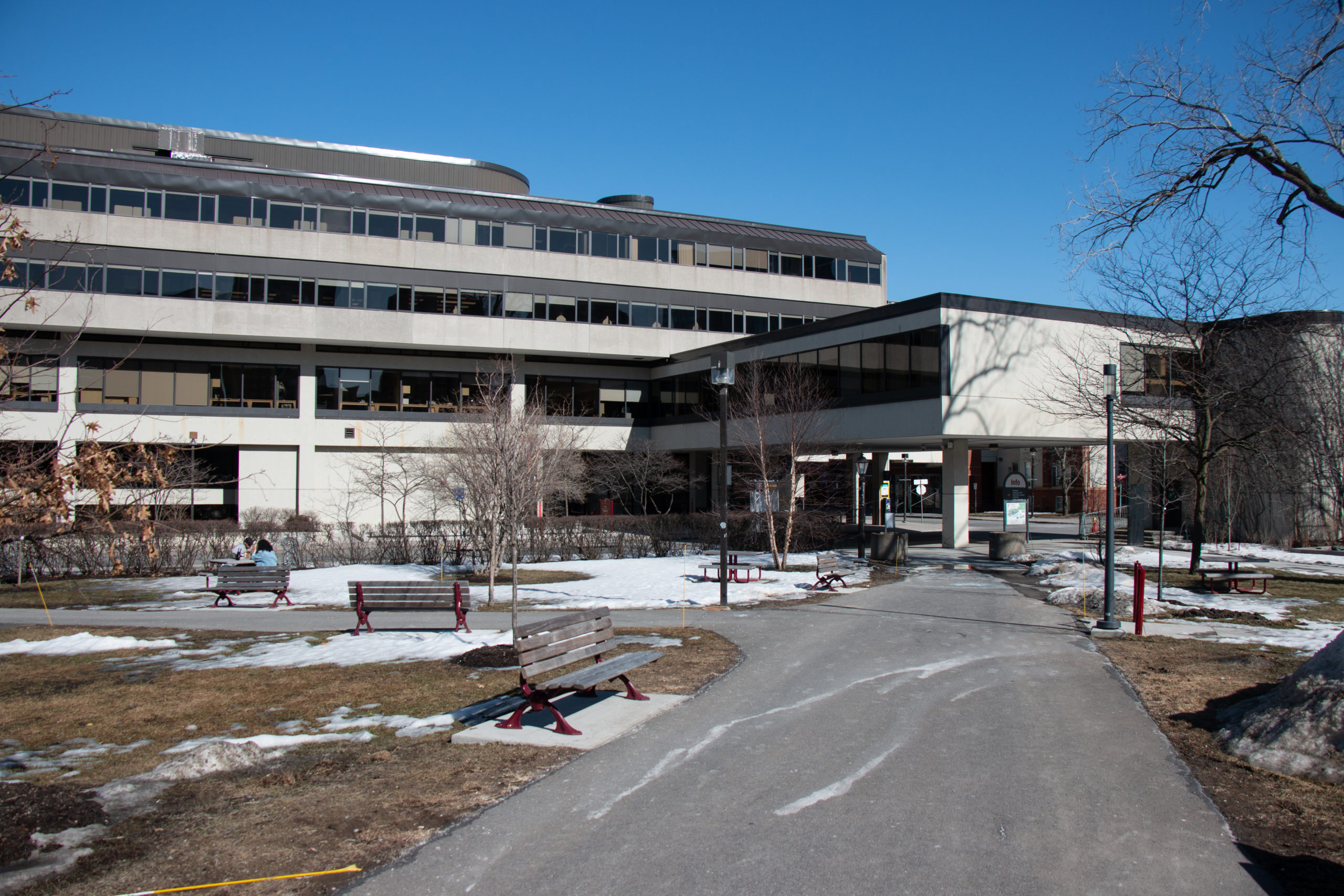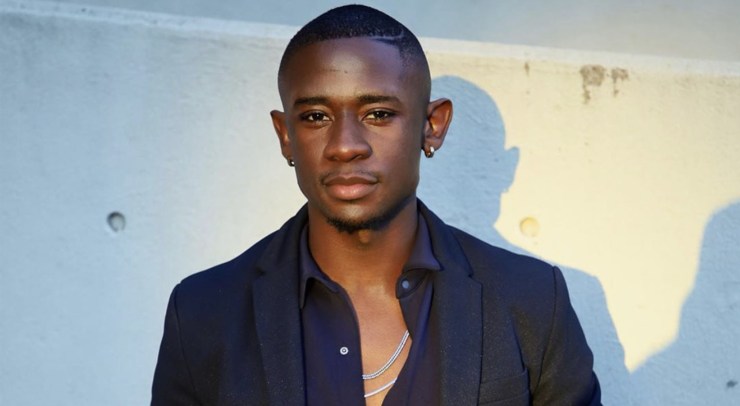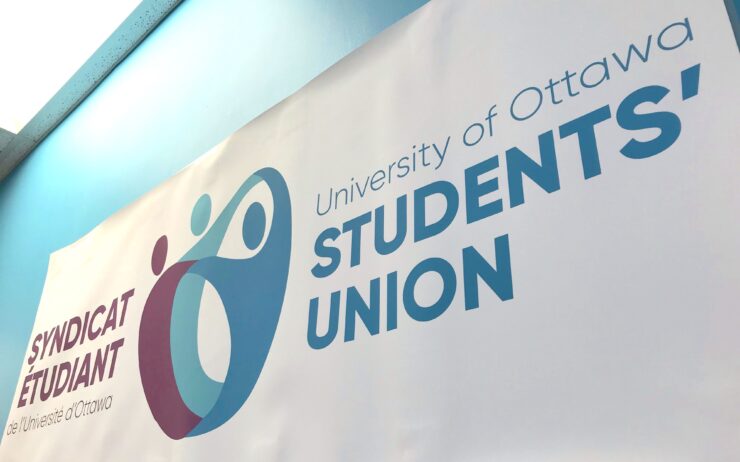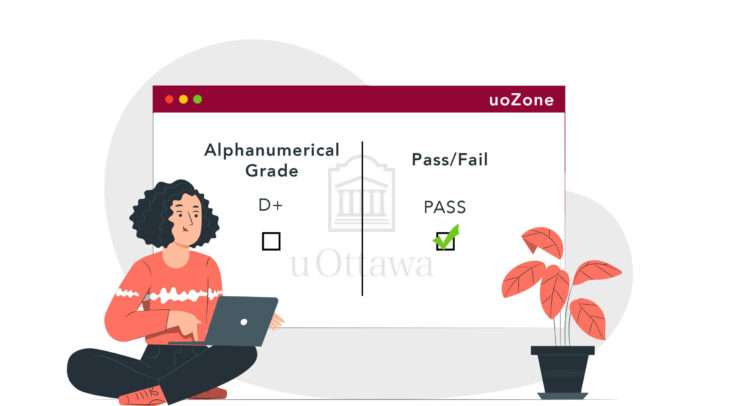The Fulcrum shines a spotlight on Alexis Khouzam and Michelle Liu
The University of Ottawa and the University of Ottawa Students’ Union (UOSU) are currently holding elections for four different elected student bodies. This article will look at the races taking place in the faculties of civil and common law for the UOSU Board of Directors (BOD) and the University of Ottawa Senate.
UOSU’s BOD has a varying number of student representatives from each faculty who convene monthly to guide the work of UOSU as an organization. The number of representatives per faculty is dependent on the size of each faculty. The positions are unpaid and the main roles of BOD members are to vote on motions put forward by the UOSU Executive Committee and to sit on a number of union subcommittees.
The faculty of civil law has one candidate for the faculty’s only seat: Alexis Khouzam. There is no candidate for the faculty of common law.
Civil law students will be asked to accept or reject Khouzam’s nomination. For those who wish to get familiar with Khouzam, here is the transcription of an interview she did with the Fulcrum’s Editor-in-Chief Charley Dutil.
All answers have been edited for length and clarity
Alexis Khouzam — candidate for the civil law’s BOD seat
The Fulcrum (F): In two or three sentences, who is Alexis Khouzam?
Alexis Khouzam (AK): I’m 19. It’s my first year at the University Of Ottawa studying civil law.
I like to define myself as someone that really values teamwork, and helping others — it’s what drives me every day. To be honest, it’s what gets me awake every day, just knowing that I can help someone defines me as a person.
I’m very caring, I’m very loving, I’m devoted to my friends, classmates and my family. I’m very bubbly. I do suffer from anxiety. I’m a big advocate for mental health. But that doesn’t stop me from being there for others, I think that’s my biggest value.
F: Can you talk about previous involvements in student life on campus or relevant experiences that would help you in this role?
AK: I am part of the paper for my faculty le Flagrant Délit, and I write articles, I’ve actually written one that was posted, I’m still working on a couple of other ones. One that I am currently working on discusses the transition from school online, and the difficulties that our students have in regards to virtual learning.
Before coming to the University of Ottawa, I was in CEGEP in Montreal at Dawson college. I was part of jack.org, essentially a nonprofit organization that aims to destigmatize mental health. There, we had to go through training and each academic institution can open a jack chapter. I founded with a few others of my classmates that jack chapter, and I was the one managing the Instagram page.
F: Can you explain in your words what is the mandate for the role you are attempting to be elected to?
AK: I was asked by the current BOD representative from our faculty (Nikolas Eburne) and I was told that I’m basically going to be representing my faculty at the Student Union.
There are numerous directors representing each faculty and in some cases multiple per faculty. At the BOD, we’re going to be talking about certain subjects, discussing what our faculty’s needs are and what our faculty’s have to bring, and also giving our faculty’s a voice. The student union includes the entire school so I want my faculty to be heard.
F: How do you plan to build on the work of your predecessor?
AK: One thing me and [Eburne] have in common, is our advocacy for mental health. We’re very involved, we’re very vocal about it … I think I’m just going to continue on. He did amazing, he really did.
[If elected] I’m really looking forward to continuing what he started, talking about mental health, putting in place, things that could help students manage going to law school and deal with their mental health and well-being because it’s something that’s super important. And I feel like we should talk about it. It’s something that I think is important enough to mention at the students union.
F: What often gets overlooked for your faculty?
AK: In law, we’re very studious people. It’s constant studying, constant reading — most don’t pay attention to the student union. So when we open our emails, it’s rare that we read the student union emails often. However, I think that since I’m a very vocal person, I love talking to people and I love meeting new people and that’s how I can get the word out about the UOSU.
F: How do you intend to facilitate communication between students, the BOD and the Exec?
AK: I am a very vocal person, I am very open to people and I am open to playing that middleman role and hear my fellow classmates and students and bring their concerns to the UOSU’s Executive Committee.
F: Is there a particular committee you plan on joining and why?
AK: So [Eburne] was talking to me about the finance one. I’m not necessarily a die-hard finance type of person, I’m not a math person, however, I do believe it’s an important role … because it’s something that is important in everybody’s life. You need to manage things, and I think it teaches not only me but a lot of people what’s essential, what should be focused on, and what you should not be focused on.
F: What is an area that you think the body you are running for can improve and how do you plan on helping to improve it?
AK: I’m not really familiar with the way the BOD functions yet. I went to my first meeting and I just applied for my candidacy … if there’s something that I see that maybe should be better or can be done better for the well-being of not just my faculty but of the BOD as a whole, I’ll definitely bring that to the table.
I think that working together as a team is very essential, especially when you’re working with other faculties. So I’m not as familiar with the way it functions so far. But I’m very eager to start and I’m looking forward to working with other faculties.
F: If you’re elected, by the end of your term, what’s the one thing you would like to be remembered for?
AK: I think it’s going to revolve around what I’ve mentioned probably 15 times during this interview, it’s going to be making a difference in terms of people’s well being.
I want to make sure that people are aware that they’re not alone, and that university isn’t something that is easy — not everybody can do it.
At the end of my mandate, I want people to know that they’re not alone, and that they can seek help, and that it’s okay to feel stress, it’s okay to feel anxious. And there are some days it’s okay to just not do anything. You don’t have to study every day. As much as our program is super demanding. You can take a day off, and that’s okay.
F: Why should students vote for you?
AK: I think that what I bring is honesty. I have such a deep connection with people. When I talk to someone, it’s very personal. When people will come to me I’m not going to ever discard them, I’m really going to talk to people.
When someone talks to me, I really take the time to listen and to see what I can do about it. I don’t just sit down and say, ‘oh, yeah, I’ll see what I can do.’ I’ll make it my own. I’ll make it my absolute job to put in all the work in order to help others … if students vote for me, I’ll be able to have their best interests at heart.
————
The U of O Senate has one student representative from each faculty, the faculties of common and civil law are combined as one. The U of O Senate is responsible for setting educational policies and dealing with academic issues.
There is only one candidate for law, Michele Liu, students will be asked to accept or reject Liu’s nomination. Liu is currently the member for the faculty of common law on the UOSU BOD.
For those who wish to get familiar with Liu, here is the transcript of her interview with Dutil.
Michelle Liu — candidate for the University of Ottawa’s Senate undergraduate law student seat
The Fulcrum (F): Can you briefly introduce yourself to our readers?
Michelle Liu (ML): My name is Michelle Liu, I’m a student in the common law section of the faculty of law, I’m very passionate about advocacy, just based on my identities as a queer woman of colour. Throughout the years, that’s really allowed me as a student leader to advocate from an intersectional perspective, that is often, underrepresented at decision-making tables.
My background is in engineering, not sure if that’s relevant here, but I have an undergrad[uate] and a master’s and I practiced as an engineer for some time and decided to come back to law school because I was still so passionate about the social justice aspects of my identities and what they allow me to do.
F: What is the role of the senate and why does this seat interest you?
ML: The Senate is the highest governing body at the university in terms of academic affairs. In terms of policies, regulations and anything academic-related, the Senate has the ultimate say.
What really sort of excites me about this seat is the ability to inform and influence how we will transition this fall to a partially in-person academic model. And that’s something that’s unprecedented in our lifetime. And so I’m looking forward to engaging with that process.
F: On the topic of in-person learning and COVID-19, how will you work to improve the situation students currently find themselves in?
ML: What I’m passionate about is advocating for marginalized or equity-seeking groups. And I know that the delivery of the vaccination will, in that process, marginalize traditionally marginalized groups.
So if we go back partially in person, what does that mean for folks who are living with HIV or situations like that? My goal is to serve as somebody who will advocate for equitable return for those in different situations. So including, as I said, us LGBTQ2+ folks, but also low-income students, rural students, students with disabilities. So I’m looking to be involved in what that process will look like.
F: In the Senate, what’s something that really gets overlooked when it comes to the faculty of law?
ML: Similar to medicine, law is an undergraduate program, per se, but you know, it’s filled with post-grad students. You need an undergrad to get into this program. I know the senate oversees all of the academics, not just undergraduate, but I think as an undergraduate program with post-graduate students, the needs are often different.
In terms of academic accommodations, if there are leaves with maternity or paternity, in terms of accommodations, those are often overlooked and so areas like that would be, again, something I’m looking to advocate on behalf of people.
F: What’s an area that you think the Senate could improve on? And how do you plan on helping improve it?
ML: I think for sure, more student consultation would be ideal. For example, 30 to 50 per cent of courses being held in person for the fall, that sort of came out of left field for a lot of people. I am involved in the student union and that decision-making process was not made transparently for students. I feel like there was not sufficient consultation in general with students, maybe students are, you know, concerned about returning, maybe they don’t want 30 to 50 per cent. Maybe they want 10 to 15 per cent. So how did they come up with that number? What was that process? I think more consultation, more transparency with the students, which these academic policies are affecting significantly, would be important.
F: You’ve been on the BOD since November 2020, what’s something that you think you’ve learned that will help you in the Senate?
For me, seeing how engaged the students are here at the University of Ottawa, about political and social issues, has really made me realize the importance and the awareness of students on these issues. I want to really engage with students who are informed on these issues in my decision making on the Senate.
F: If elected, what is the one thing that you want to be remembered for at the end of your term?
ML: As the person who stood up for queer students, the students with disabilities, the BIPOC students, while everyone was making decisions for the majority. I want to be known as the one who reminded the Senate to not forget about these folks who may not be able to get vaccinated or who may not have access to vaccinations. That would be sort of the legacy I would hope to have.
F: Why should law students accept your candidacy?
I think I’m quite experienced in this sort of role. As I said, I bring a unique intersectional perspective that is often underrepresented. It’s an important one. And so to really achieve all of the equity mandates that the U of O strives to meet, I think that I would be an ideal person for this role.






